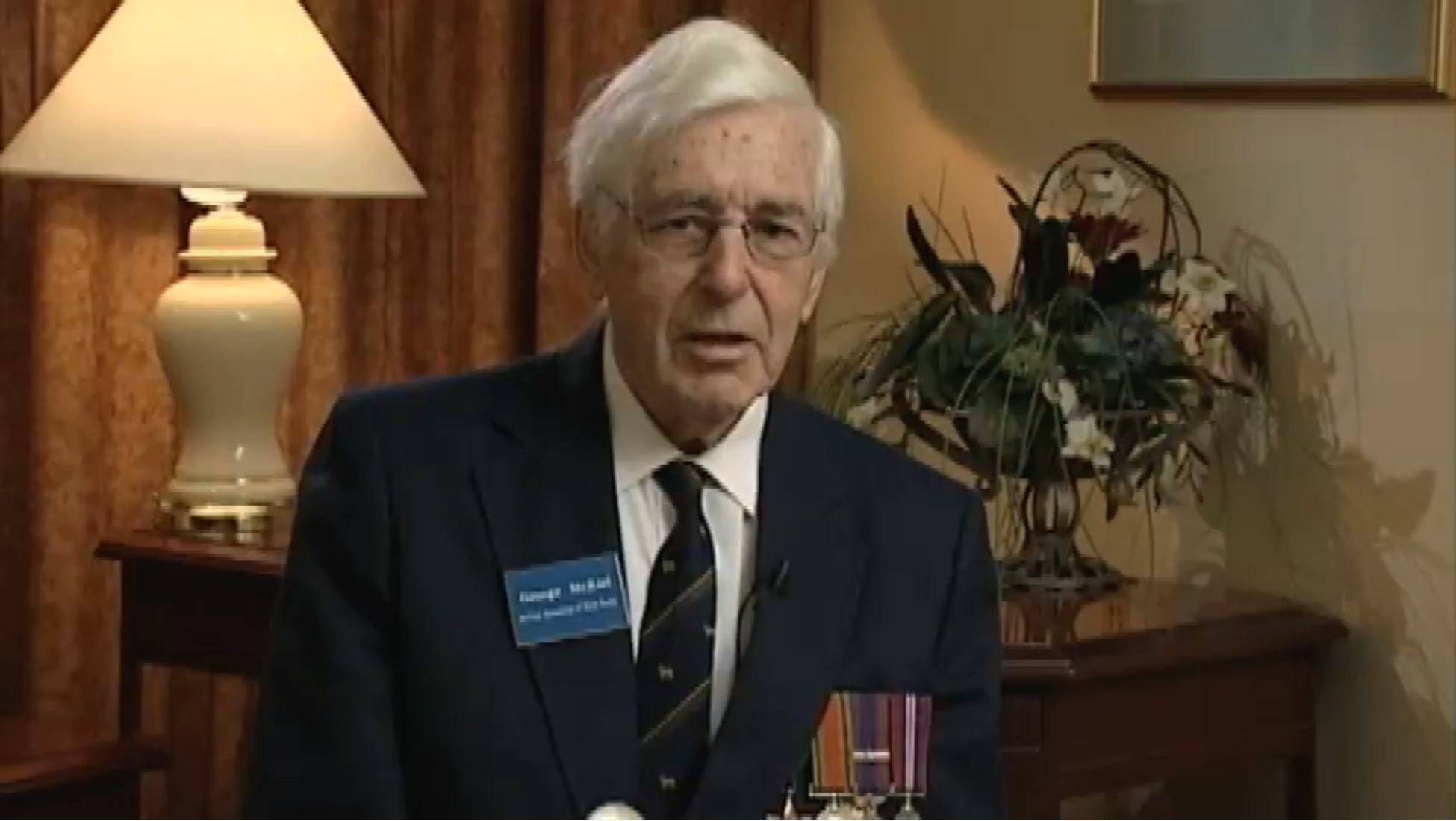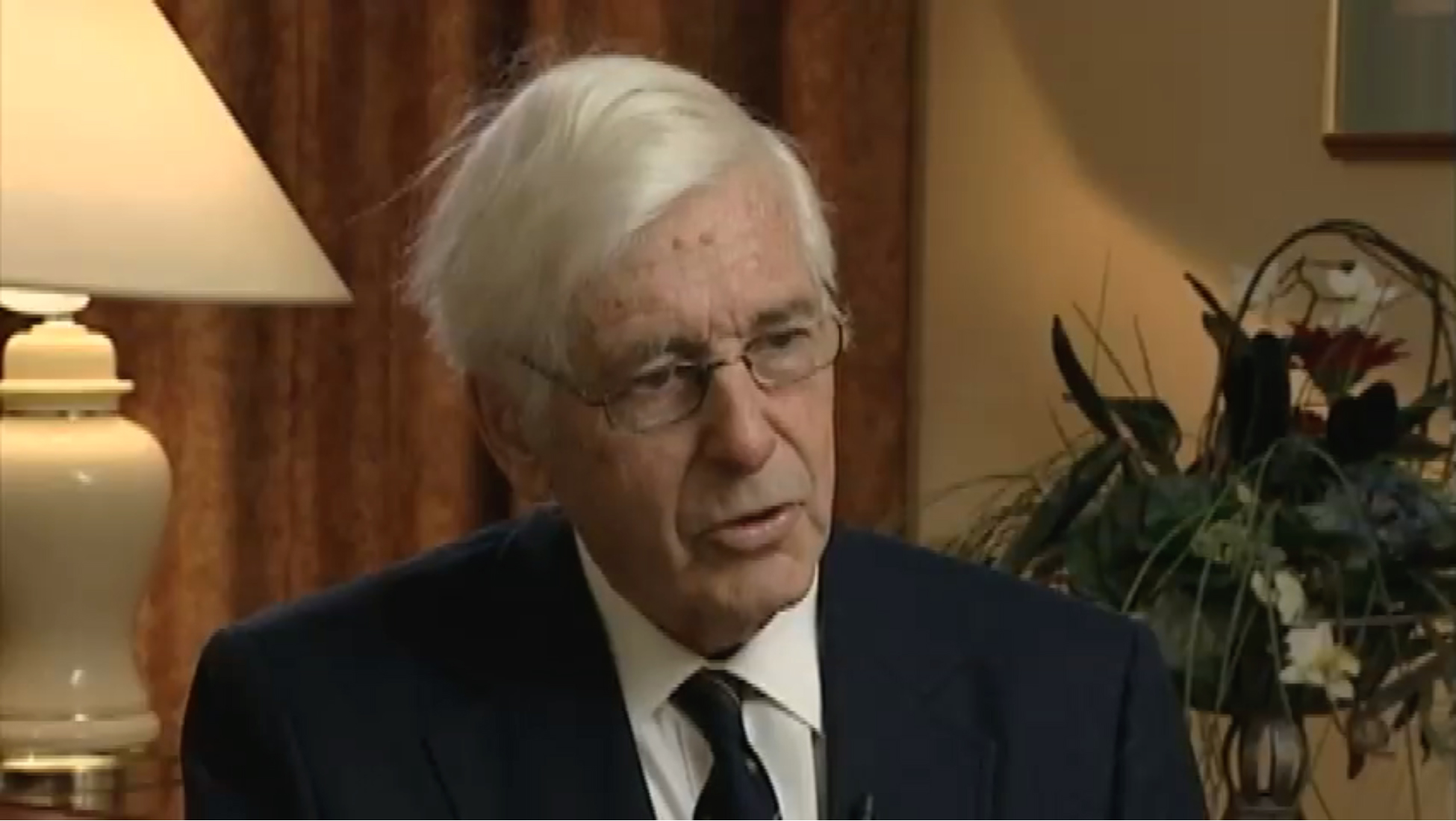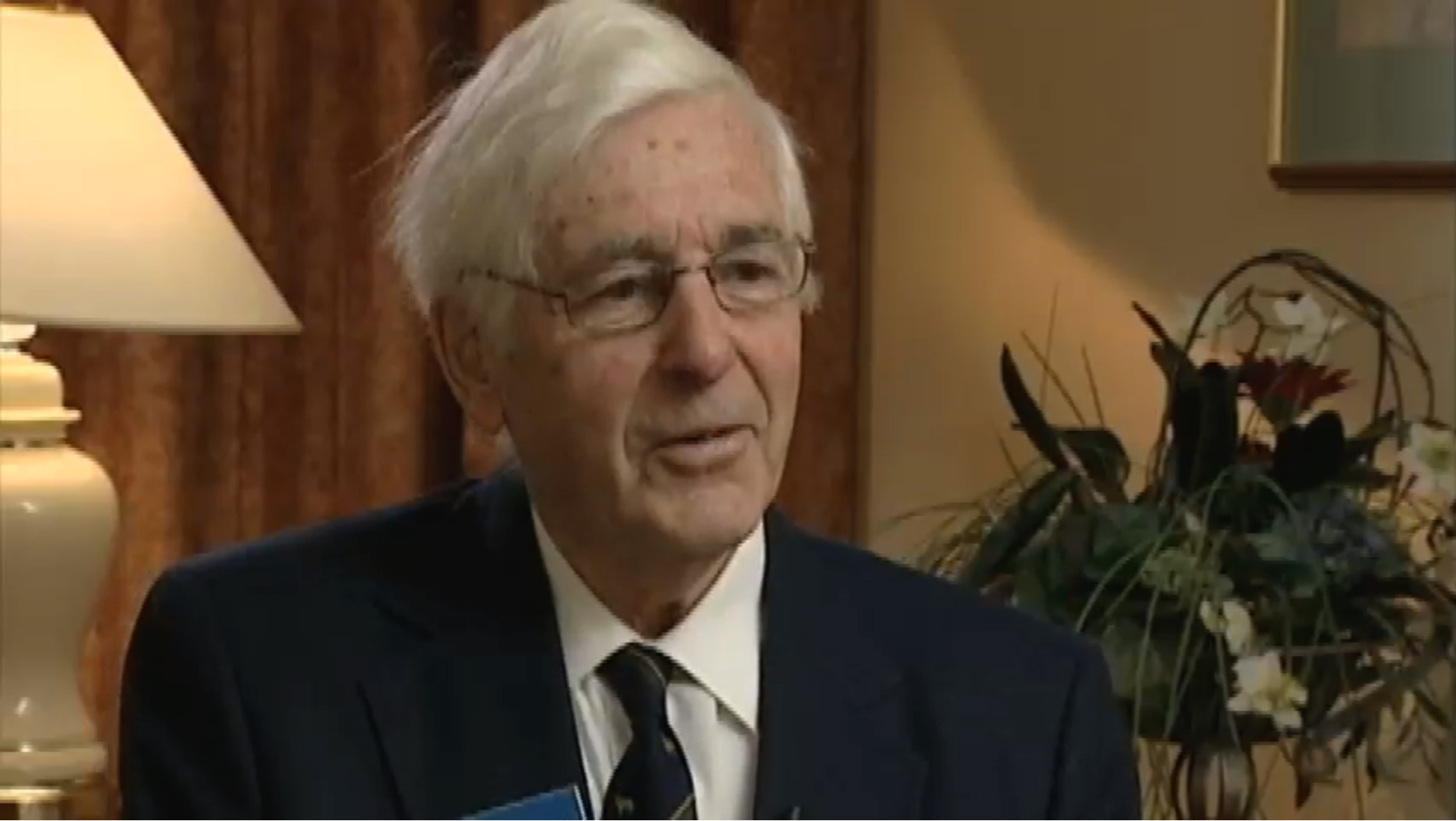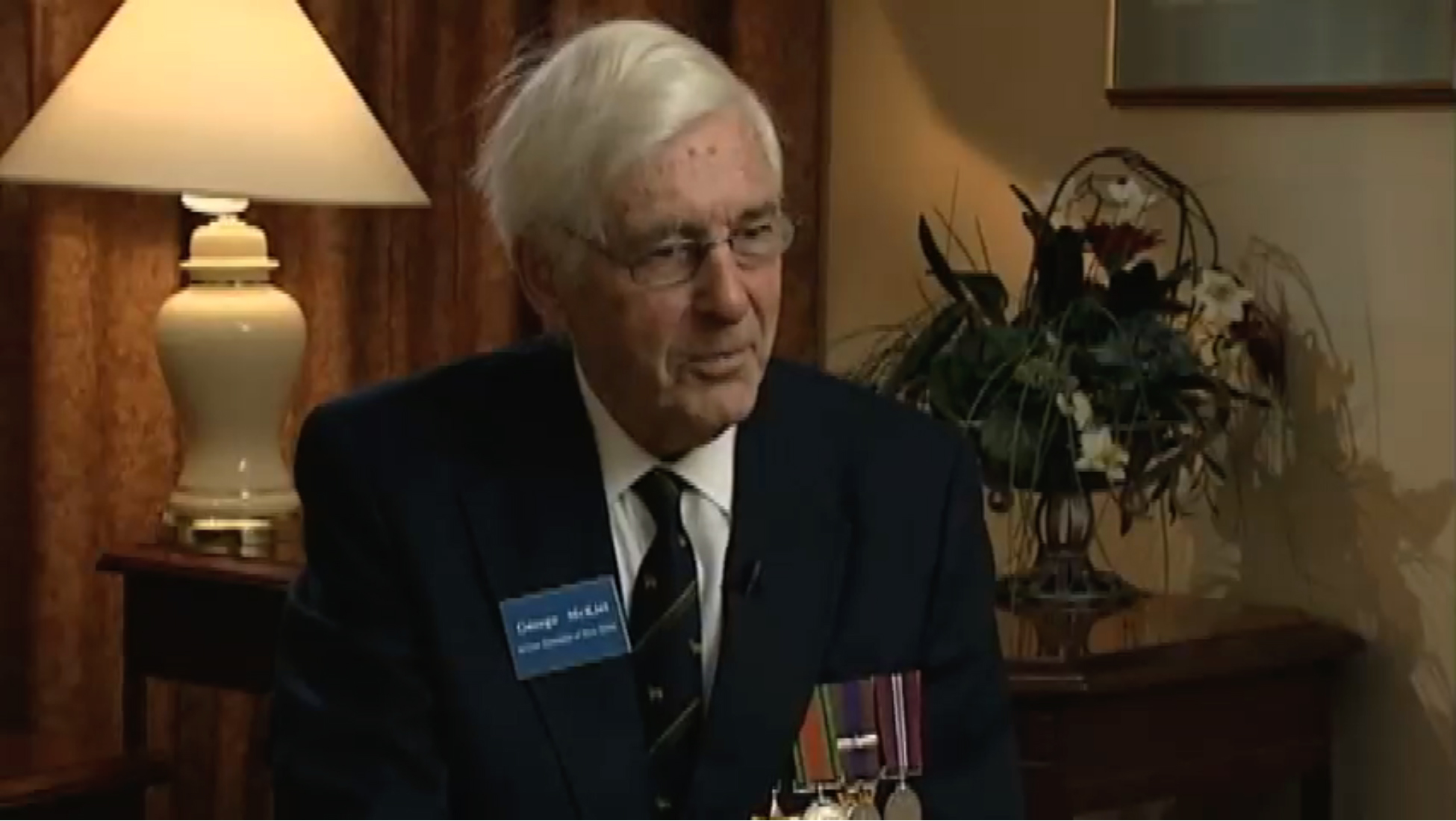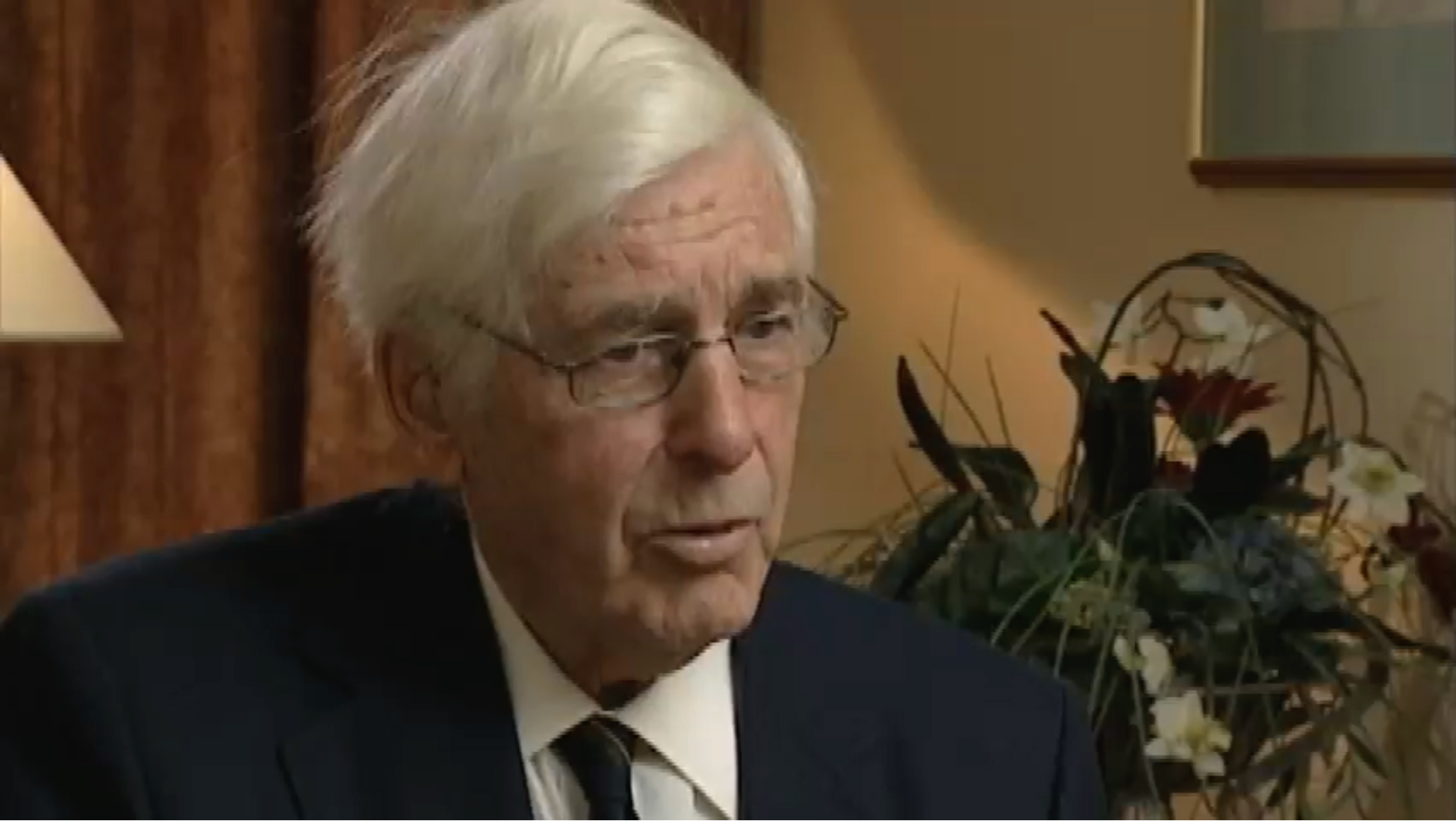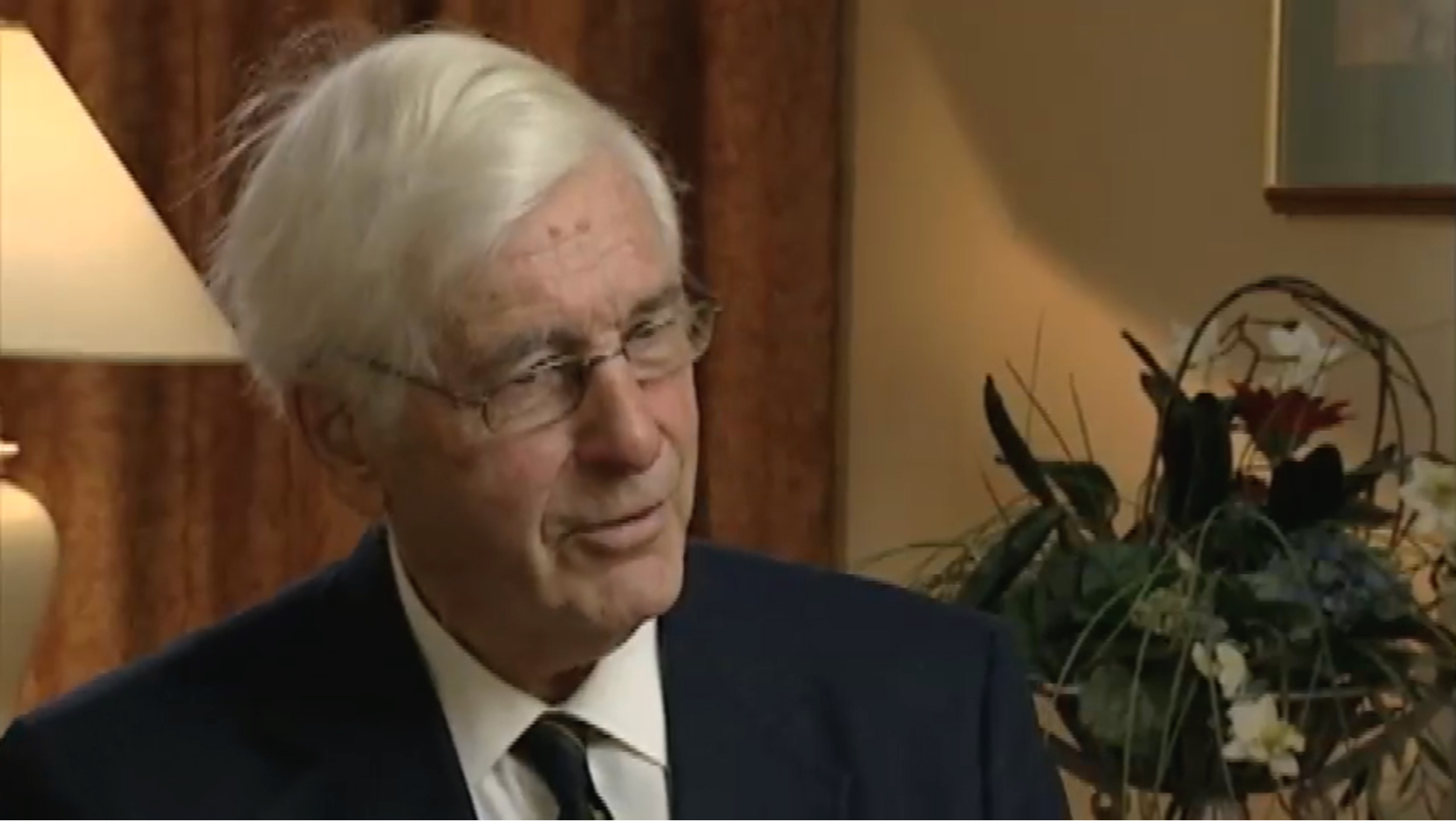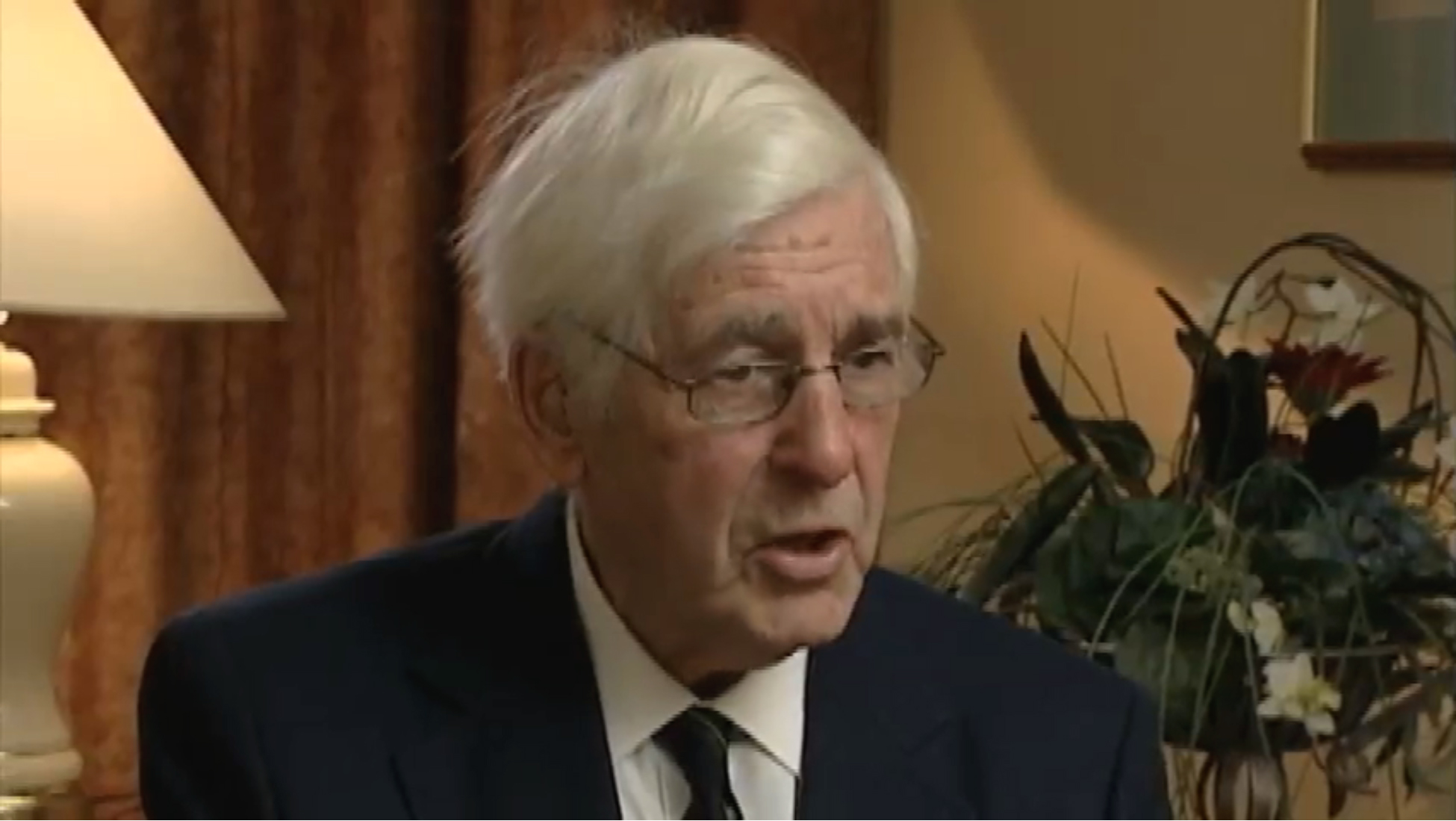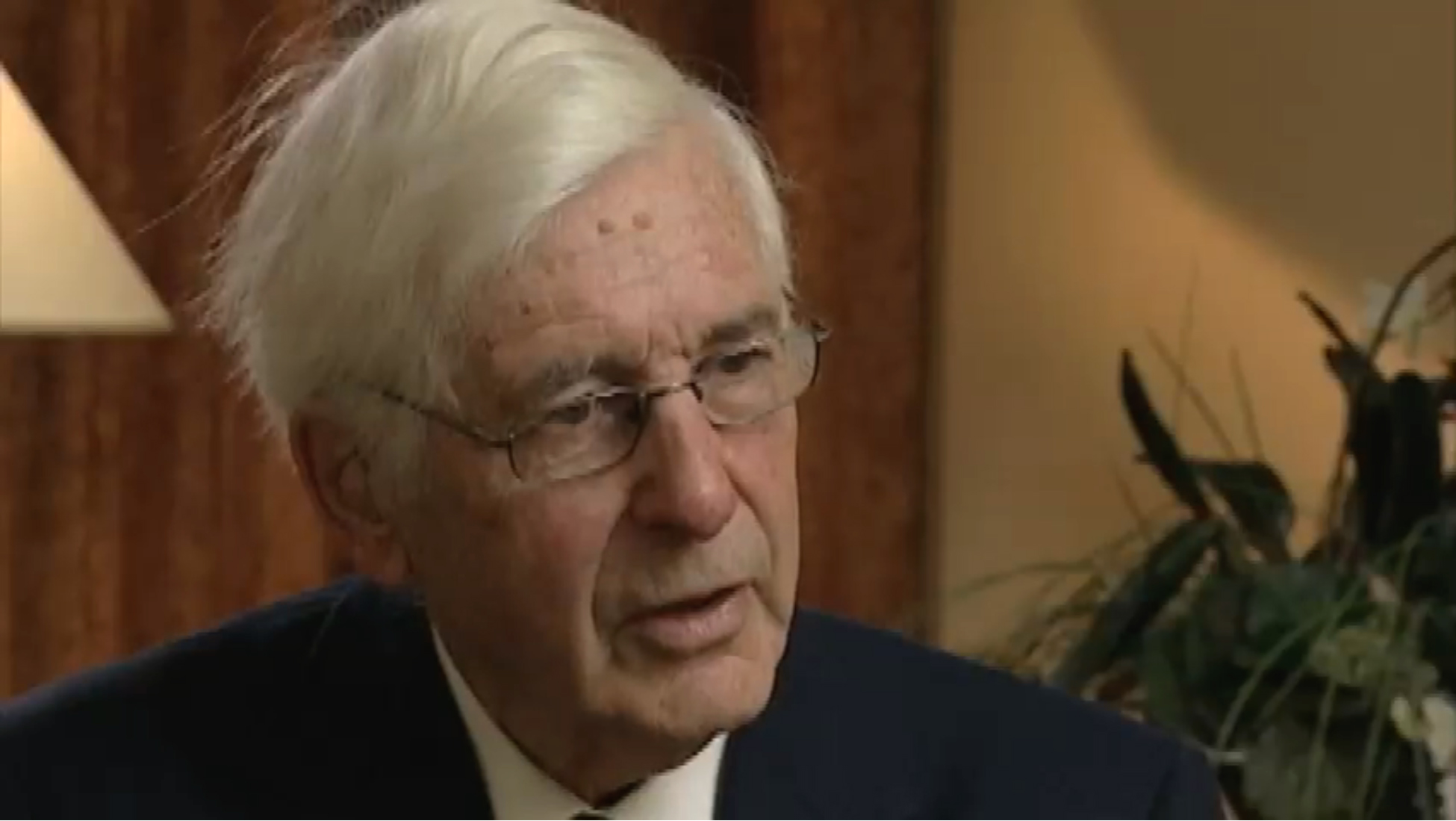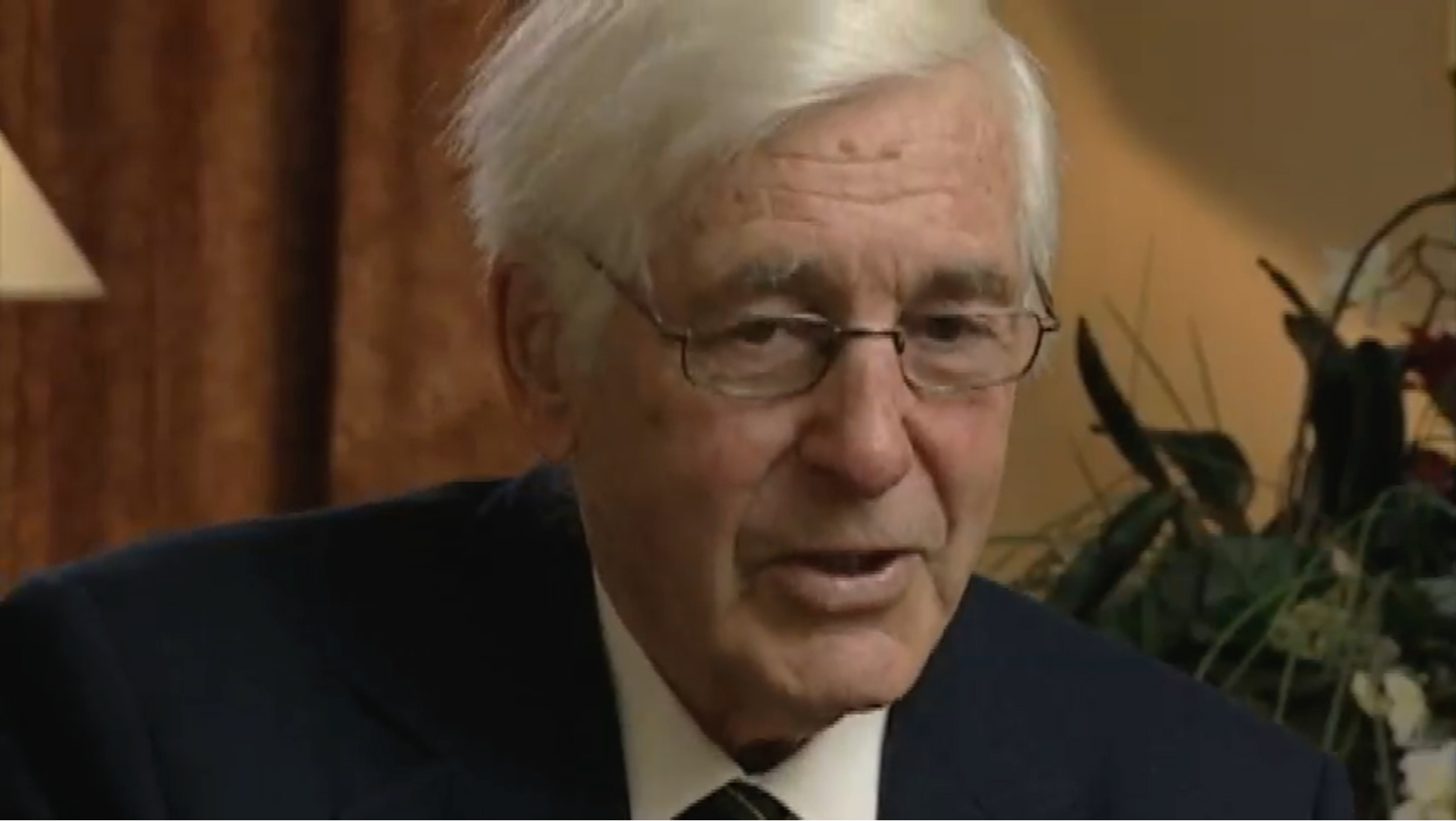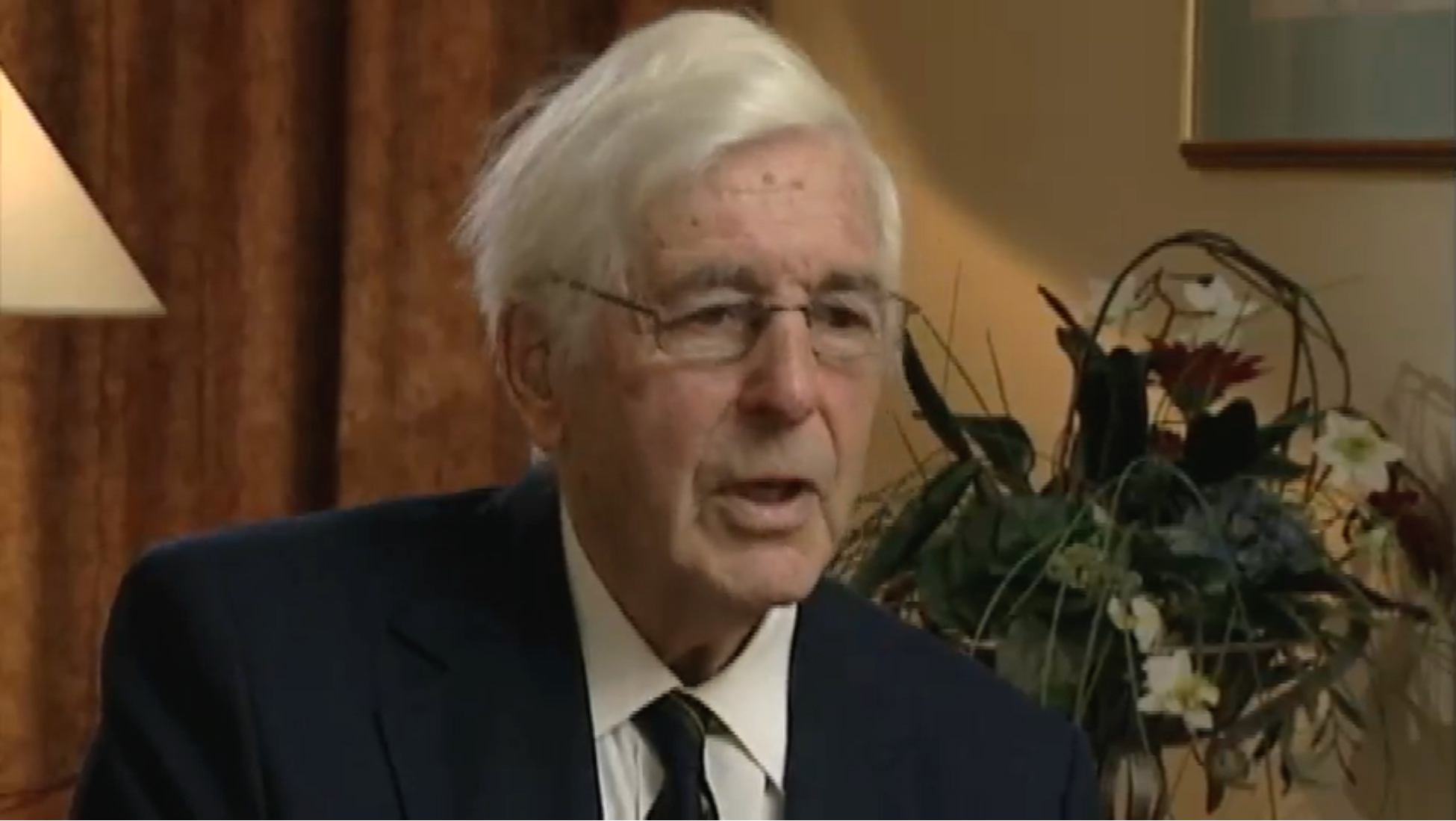Remembrance Train
Heroes Remember
Remembrance Train
Transcript
Description
Mr. McKiel describes his experience with the Remembrance Train.
George McKiel
Mr. McKiel was born in Lunenburg, Nova Scotia, on May 15, 1924. His mother was a war bride, and his family moved to Devon, England, when he was quite young. Mr. McKiel joined 405 Squadron, Bomber Command in 1943, and was shot down and captured shortly thereafter. He spent 2 years in a Polish prisoner of war (POW) Camp, Stalag Luft 3, where he helped 76 officers escape in the Great Escape. After his liberation, Mr. McKiel returned to Canada and eventually earned a PhD in Cancer Research. These credentials have allowed him to consult on Nursing issues as far away as Australia. Having recently returned to Lunenburg, Nova Scotia, Mr. McKiel is already involved with seniors' health programs in his community.
Meta Data
- Medium:
- Video
- Owner:
- Veterans Affairs Canada
- Duration:
- 01:59
- Person Interviewed:
- George McKiel
- War, Conflict or Mission:
- Second World War
- Location/Theatre:
- Poland
- Battle/Campaign:
- Bomber Command
- Branch:
- Air Force
- Units/Ship:
- 405 Squadron
- Rank:
- Flying Officer
- Occupation:
- Air Bomber
Related Videos
- Date modified:



